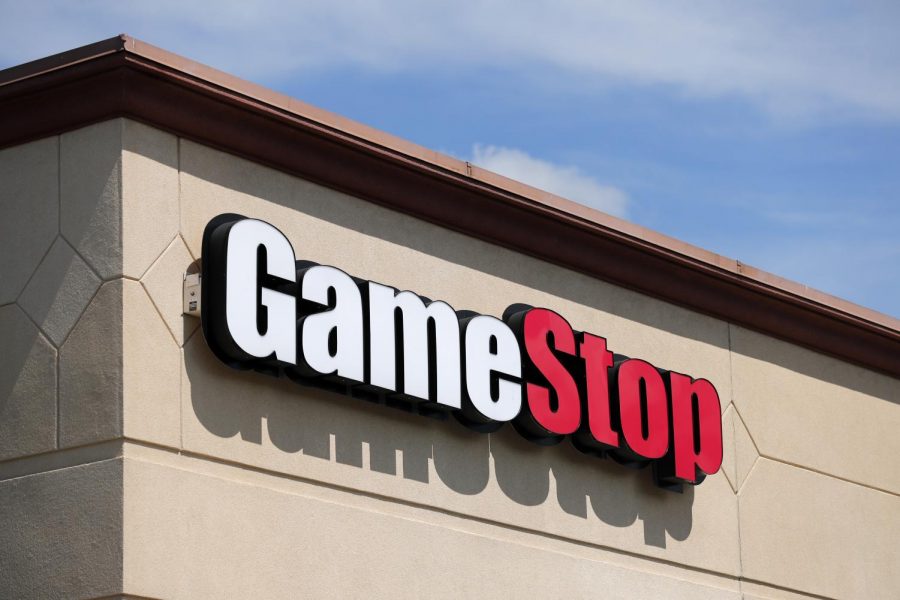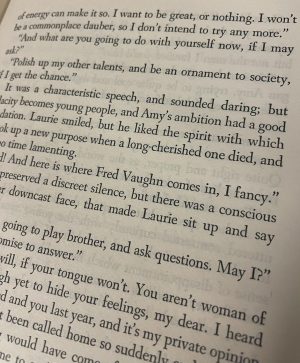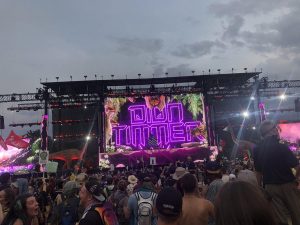Let the kids have GameStop
A GameStop store in St. Louis. (AP Photo/Jeff Robertson, File)
Feb 11, 2021
Robinhood was founded in 2013 with the intent to build a company “that would provide everyone with access to the financial markets, not just the wealthy.”
There’s a hard irony in the company going against their own namesake’s mission of taking the rich’s money and giving it to the poor by preventing individual investors from buying shares of stocks like GameStop, AMC and Nokia.
Melvin Capital Management LLC., a Wall Street Hedge fund, was shorting GameStop’s stock, meaning that it was betting heavily that the value of GameStop would fall. To their surprise, the stock promptly shot up from $4 to $483 at its peak in a few days, an increase of more than 1,600% in its value. The short squeeze was in large part due to the collective of a community on the social media platform Reddit called WallStreetBets. The community’s members, through purchasing a profusion of shares, caused Melvin Capital to lose 53% of their assets, which was more than 4 billion dollars, according to Business Insider.
It makes sense that Melvin shorted GameStop. Since March, the brick-and-mortar retail industry has suffered.
However, on Jan. 26, Robinhood pulled the aforementioned move of halting trading for shares in GameStop and others on their platform. Class action lawsuits were filed against the investment app on the basis of market manipulation. According to Politico and the House Financial Service Committee’s website, Robinhood’s CEO Vlad Tenev has been called to a hearing before the Financial Services Committee on Feb. 18. Hopefully the hearing will provide further context on their decision for the halt. The main reasoning was for fears of volatility. However, Robinhood’s reputation as an investment platform has been irreparably damaged as a result of their decision.
What matters is that the trade halt happened.
I tried to buy more shares on Jan. 26, but I was greeted by a grayed-out, inaccessible “Buy” button next to a red, practically trumpeted “Sell” button. Staring at the “Sell” button as I watched my share price of GameStop stock plummet, I felt little genuine loss. My money, I tell myself, is going toward the cause.
I then logged on to Reddit and entered the WallStreetBets forum, where I was bombarded by an assortment of memes and rallying points that championed the strategy of holding the stock instead of selling it. The hedge funds that shorted the shares need to buy back enough shares in order to cover their position. If there is too little supply to cover the shares the hedge fund shorted, then the price theoretically skyrockets while the shares the hedge fund shorted incur interest. Rival hedge funds short squeeze each other frequently, with competitively induced bankruptcy as the goal — WallStreetBets is in the position hedge funds typically are against each other. Why should they be held back from punishing hedge funds when individual retail investors often suffer at the hands of Wall Street banks and hedge funds?
As the David and Goliath story between a hedge fund and hundreds of thousands of individual retail investors unfolds, there is really no way to know the outcome. The 2008 VW short squeeze offers some precedent. There was a period of a dip where soon after, the stock promptly shot up from $200 per share to over $900 per share. This squeeze momentarily made VW the most valuable stock in the world at the time, worth more than Exxon Mobil.
Co-chair of the Finance and Economics Department in the Boler College of Business Bill Elliot explained that the GameStop event is abundantly out of sorts with the fundamentals of the market. “Ultimately, if it’s a rigged game, then why should you and I even bother to compete in it?” he said. “Our goal is to create an efficient market, which creates confidence in the investor base that we can put our money in there and know that what we’re paying is a fair price and what we sell at is also a fair price.
“The devil is in the details: how does [the Securities and Exchange Commission] regulate in such a way that is not such a heavy hand that squashes market efficiency and economic growth? How do we maintain that balance?”
In order to have confidence in the market, I believe the individual should be empowered, not limited.
The same sentiment is applicable for the 2008 subprime mortgage crisis that was worse for the global economy than the Great Depression. Only Kareem Serageldin, former executive for Credit Suisse, was sent to jail for his role in the 2008 crash. When looking at the damage the crisis had on so many individual investors, it is astonishing that only one person was held accountable.
For the GameStop short squeeze, as individual investors were the ones causing the crisis for hedge funds, the roles were reversed. Robinhood placed restrictions on buying the stock, which can be seen as market manipulation. Who knows how much higher the stock could have gone and how much more Melvin and other hedge funds could have suffered if investors were allowed to buy more shares?
“Government bailouts effectively privatize gains and socialize losses, an example of which is the 2008 financial crisis,” Elliott continued. “However, in the case of the financial crisis, an argument can be made that it was necessary to prevent a collapse of the financial sector. In the case of the short squeeze of GameStop, it is unlikely that the result will be as devastating to the financial sector and thus no bailouts would be necessary.”
Melvin wanted to run GameStop into the ground by shorting it to the extent that it did. They were met with fierce resistance from individual investors as a result of their short position. Melvin Capital, if it fails, will be a martyr for market equity and a deterrent for other hedge funds to short with such aggressively damning positions in the future. Melvin is not “Too Big to Fail.” It will not cause a domino effect for the financial sector if it goes under. It is one of literally thousands of hedge funds.
Ultimately, this event demonstrates that the stock market can be shifted by the effort of individuals. Robinhood did do one good — they gave power to individual investors. But they also made a move that restricted those same investors, tarnishing their users’ trust as a result, especially in light of other brokerages retaining their users’ ability to buy the stock.
Robinhood had at the very least reinstated share buy limits. At the time of writing, all limits are now off. GameStop’s stock price has plummeted to $52. If the 2008 VW short squeeze is any indication of this short squeeze, the stock is likely to go back up again following a dip. Until then, I’ll be holding my shares, along with many others. The message has been sent: individual investors are not totally at the whims of Wall Street. We have the power to influence the market.
Let us have GameStop, AMC, and Nokia. We like the stock. Why are hedge funds protected from volatility while the individual investor suffers under uncertain circumstances? Why should Robinhood make the decision to hold back individual investors? It’s not equitable, and for the future of WallStreet, the individual, you and I, are now being considered with more gravity than ever before.













